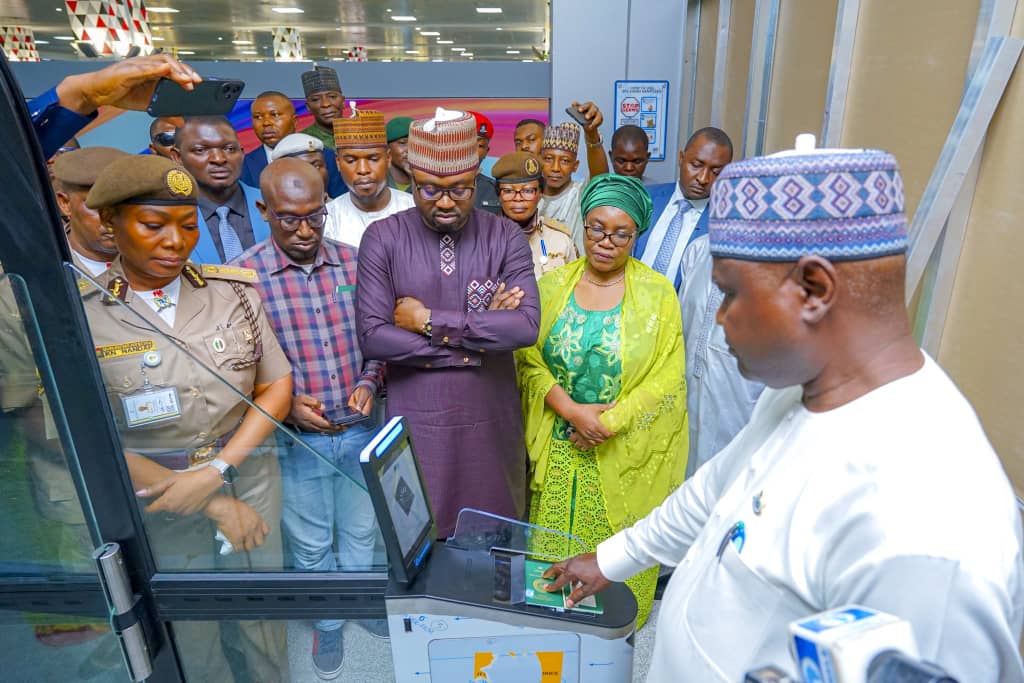Effects of new NPC bill on freedom of information
By Runsewe Solomon & Damilola Akinmolayan
A bill seeking to regulate journalism practice in Nigeria has drawn strong condemnation from media practitioners and right groups in the country. They described some of the provisions in the proposed bills and unconstitutional. The Hope Classics Spoke with some Journalists and lawyers over the issue. Excerpts:
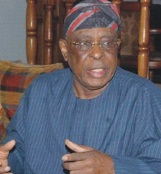 The proposed Press Council amendment bill included provisions that would require Nigerians to obtain a license before operating press organisations.
The proposed Press Council amendment bill included provisions that would require Nigerians to obtain a license before operating press organisations.
Decree 4 was restricted to the disclosure of sources of information. The one they are proposing now includes obtaining a license before you can build a press hub.
It says before you can even begin printing a newspaper, you must obtain a license. It is far-reaching and sweeping.
I urged Nigerians to continue resisting attempts to regulate the media, noting that previous attempts were successfully resisted by the people.
I was surprised at Minister of Information, Lai Mohammed’s disclosure that the Nigerian government intended to amend the National Broadcasting Commission (NBC) laws to enable the agency to regulate the social media, such a regulation would not work unless the government decided to shut down satellite communications and block access to data and WIFI in the country.
I am surprised because, how do you control a radio station that is based in the United States and broadcasts its content to Nigeria? There are many such radio stations that are not based in Nigeria, unless they want to shut down satellite communications totally or access to WiFi and data.
I cannot see how it will be easy to implement, especially when you have people outside the country broadcasting TV and radio signals geared towards particular interests and geared towards different interests that we are involved in.
When we talk about fake news, the spread of false information in the social media was mostly caused by bloggers parading themselves as journalists.
The Nigerian Union of Journalists (NUJ) must issue conditions for those who wanted to practise as journalists.
To check the spread of fake news, journalists must take the war to the internet by producing quality news items.
The Decree 4 of 1984 was signed by Nigeria’s President Muhammadu Buhari when he ruled the country as a military dictator.
Decree 4 gave the military regime powers to shut down newspapers and radio and television stations deemed detrimental to its interest.
On Decree 4, the regime jailed journalists for writing and publishing stories that embarrassed the government.
A coalition of Civil Society Organisations (CSOs) comprising Premium Times Centre for Investigative Journalism (PTCIJ), Media Rights Agenda (MRA), International Press Centre (IPC) and the Centre for Media Law and Advocacy in a joint memorandum, has said some clauses in the Press Council Bill posed dangers to the freedom of the press.
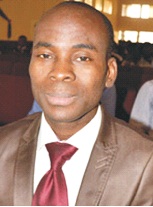
Nigeria is not yet a free and open society despite the availability of diverse viewpoints flowing from a remarkable abundance of press organisations in the country.
However, several press organisations in Nigeria lack complete freedom due to censorship, multiple power centres and volatile political institutions.
In spite of the proliferation of press organisations, constitutional provisions for press freedom have not been fully enforced.
Military regimes and civilian administrations have in turn violated constitutional rights to press freedom in Nigeria. The sustainability of Nigerian democracy is at stake in the absence of press freedom.
A political scientist stated that ‘…democracy is not just about rights. It is equally about participation, interest representation, and contestation.
Lack of full recognition for the press is a major political constraint and a constitutional aberration in Nigeria.
Apart from political constraints, other factors have affected the role of the press as the fourth estate. These include commercialization and a decline in the observance by journalists of their professional ethics principally caused by the daily struggle for survival in a highly competitive but limited market.
Nigeria, China, Cuba and Eritrea were among the countries with high prevalence of arrested and jailed journalists in 2007.
Several cases of arrested journalists were reported in Nigeria even during democratic dispensations (The Punch 2008).
Generally, state restriction of freedom of expression and police brutality were regular threats to members of the press. Police raided editorial offices and arrested employees of press organisations including the Daily Independent, The News, and The Observer during the 1999-2003 democratic dispensation (The Punch 2008).
The police action was said to be the result of press publications considered critical of the Nigerian government. As such, the power of the press to check institutions has been curtailed, with grave implications for socio-economic development in Nigeria.
Unfortunately, elite discourses have captured much of the mediated public sphere in Nigeria. This trend throws up some concern with regard to the marginalisation of the majority of Nigerians.
The space allotted to public opinion in the media is so minute that very few people have the opportunity to express their views. Media configuration and their centralization within the contexts of urbanisation and strict gate keeping role of state agents occupied the public spaces needed for public-government partnership.
Elite capture of the press-driven public sphere portends danger for democracy as it creates multiple voices that produce different versions of various class interests and exclude the interests of the poor.
The Nigerian situation is among the bad cases of press repression in the world.

“My position on a bill seeking to amend the Nigerian Press Council Act is not different from other key stakeholders who opposed some aspects of the bill.
“The Nigerian Press Organisation (NPO) which is the umbrella organisation for the Newspapers Proprietors Association of Nigeria (NPAN), Broadcasting Organisations of Nigeria(BON), the Nigerian Guild of Editors (NGE) and the Nigeria Union of Journalists (NUJ) as well as civil society organisations had asked the federal lawmakers to drop the proposed bill because of an ongoing court case on the issue.
“They are of the opinion that 17 out of the 39 clauses in the bill are parts of litigation filed since 1999 in court.
“Like the stakeholders, I think the bill needs to be redrafted to remove controversial clauses that offend freedom of press in the country. It will be disastrous if the bill is passed to put government in total control of the press.
“No democracy can grow without a virile, independent and free press.
“Although the chairman of the committee, Olusegun Olatubosun, said the court process would not stop the committee from discharging its constitutional function of making laws, I think there is a need for the stakeholders to reach a compromise on the best way forward to further make Nigerian Press to be more stronger rather than trying to weaken it.
“I am also in support of a position of a coalition of civil society organisations comprising, Premium Times Centre For Investigative Journalism (PTCIJ), Media Rights Agenda (MRA), International Press Centre (IPC) and the Centre for Media Law and Advocacy in which in a joint memorandum, presented on their behalf by the Executive Director of IPC, Lanre Arogundade during the House of Reps recent public hearing on the bill, advising the lawmakers to adopt the paths of Ghana and South Africa in the formulation of laws on media.
“We are specifically not happy with a situation whereby the section three of the proposed bill would make the “media the department of the federal ministry of information. It is not good professionally for the media to seek approval from the Ministry of Information or any other political authority.
“The coalition is also of the opinion that the provision of section 3(d) constitutes a potential threat to press freedom and media survival as it does not provide for judicial intervention before highly punitive measures are handed down by the council and indeed could be used as a political weapon against the media. I totally agree with the coalition that some aspects of the bill should be dropped.
“Also look at Section 33 (3) and (4) of the proposed bill does not give room for retraction and apology where a fake news is mistakenly published but recommends a blanket sanction up to ten million naira or closure for a period of one year or both, this is too much punishment and too harsh” Adegbite said.
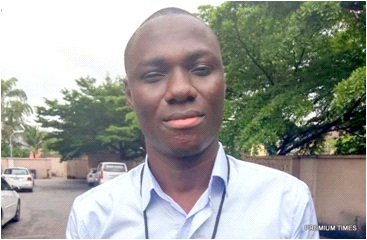
The proposed bill is unconstitutional as it runs against the principles and tenets of the rule of law and is actually subjudice given that a case on the subject matter is still pending in the highest court of the land – the Supreme Court – in view of which the bill should not have been drafted in the first instance.
The Nigerian Press Council said it was necessary to have a body that would arbitrate between the media and the public, without necessarily gagging or regulating independent media practitioners out of business. Its officials argued that it would be unfair, if not impossible, to allow the media regulate itself, adding that few or no disciplinary actions had been activated to curb unethical conducts amongst journalists in the country.
But the media advocacy groups said attempts to re-legislate the NPC even while the existing one was still being challenged was not only suspicious but also bore the hallmarks of a totalitarian regime which President Muhammadu Buhari once represented.
Mr Buhari’s first outing as a military dictator in the 1980s saw the imprisonment of journalists who were handed long sentences for writing articles which the junta considered critical of state actors at the time.
Although he never apologised for the controversial acts of the past, he, however, labelled himself as a “converted democrat” in the run up to the 2015 elections.
That the bill is, for all intents and purposes, draconian and anti-press freedom being an amalgamation of the obnoxious Public Officers Protection Against False Accusation Decree No. 4 of 1984 and the Newspapers Registration Decree 43 of 1993, both vestiges of the dark days of military rule and therefore incurably and irreparably bad, being also inconsistent with values of our democratic society.
They argued that the Nigerian Constitution in Section 39 and other binding statutes such as the African Charter on Human and Peoples’ Rights forbade state regulation of journalism practice, and the controversial bill contained provisions that sought to do exactly that.
The groups said the bill would create “a curricula in training of journalists and usurp the powers of the regulatory bodies in the educational sector affecting media training especially the National Universities Commission and the National Board for Technical Education,” a measure that it said could be misused by state actors.
It was unclear whether Mr Buhari had any input in any of the bills, but he had not openly condemned them. Still, the president mentioned in his recent appearance at the International Criminal Court that he was open to freedom of speech and other fundamental rights of citizens.
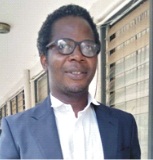
Generally the right of a man to express his mind is a God given right associated with human being because he is a man. Therefore, the right of freedom of expression is recognised all over the world as one of the fundamental human rights that are least regulated. Hence, any efforts to curtail the horizon of the right for whatsoever are view with disdain. This explains the uproar that greeted the efforts of the National Assembly at further regulating the already over regulated Nigerian press.
Surprisingly, the call for further regulations of the press was louder among conventional and traditional media houses in order to reduce the influence and influxes of online media that were growing the fake news problems pervading the nation. Amendment to Press Council Act is widely seen as a Threat to Media Freedom.
Hence, almost all the key players, stakeholders, NGOs and media influencers, have been reported to oppose the proposed amendment of the Nigerian Press Council Act by the National Assembly saying the measures contained in the amendment Bill seek to make the Government the arbiter of truth while subjecting the entire media sector in Nigeria to the control of the Minister of Information and Culture in violation of internationally accepted norms and standards.
No doubt there is a need to regulate the media and press as an antidote to fake news and prevent freedom of hate speech”, however such regulations should be designed by the renown players in the press in line with the international best practices. As opined by the consortium of stakeholders in the press media, any regulations which is targeted to erode media independence or freedom must be roundly opposed using all the available instrumentality of law.
In the case of the Press Bill now before the National Assembly, some of the provisions are unduly punitive, vested too much powers and influence on the government.
It is also feared in some quarters that the proposed amendments contained in the Bill are aimed at restricting freedom of expression and media freedom.
Another offending aspect of the Bill are provisions that could be operated by the central government through media regulating agencies to further take away media independence.
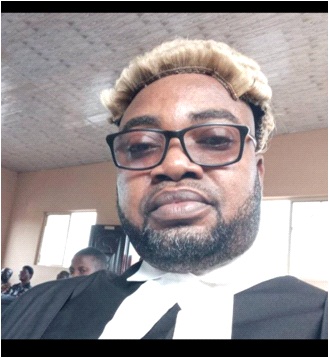
Right to Freedom of Expression and the Press which many commonly refer to as “freedom of speech* is guaranteed by the 1999 Constitution of the Federal Republic of Nigeria as amended. Section 39 (1) and (2) of the Constitution provide that:. *”(1) Every person shall be entitled to freedom of expression, including freedom to hold opinions and to receive and impart ideas and information without interference.
Without prejudice to the generality of subsection (1) of this section, every person shall be entitled to own, establish and operate any medium for the dissemination of information, ideas and opinions.”* It is in line with these provisions that a lot of Nigerians are opposed to the ongoing amendment of the Press Council Bill. It has been argued in many quarters that the government’s intention of regulating the sector is borne out of bad fate and an attempt to gag the press and the people. This is more worrisome when government in recent times has shown intention to clamp done on people’s right to freedom of speech through the banning of Twitter, a social media outfits.
We have seen the backlash of that decision with many stake holders including the international community condemning the government’s action. Regulating the media sector is not bad in its own but the timing of the amendment of the Press Council Bill is wrong as it creates tension in the polity as people believe that government is all out to trample on their right to freedom of speech


